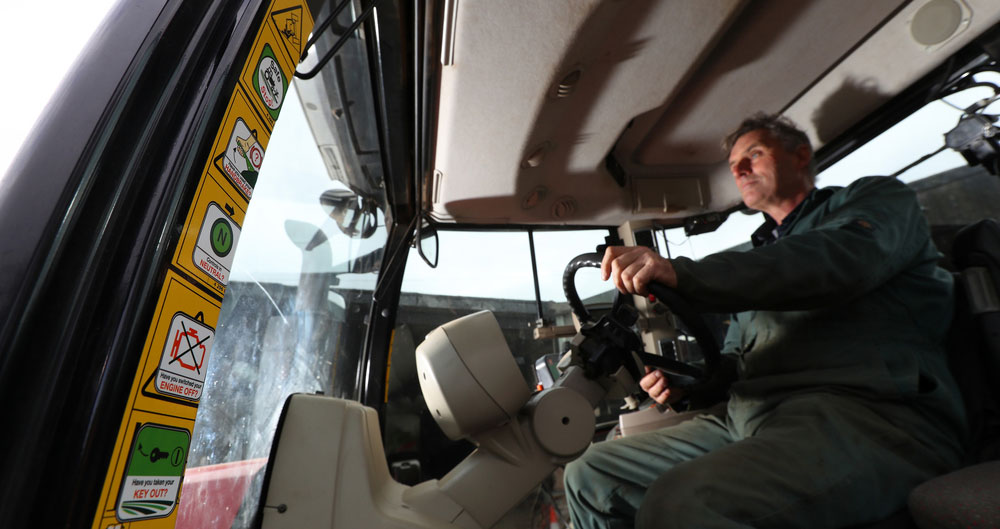Click on the headings below to find out more:
Understand other road users and see things from their perspective
Don’t use your mobile phone
Use suitable warning signs in appropriate places
Carry passengers safely
Ensure your trailer has functioning brakes
Understand other road users and see things from their perspective
This is key at all times, particularly when it comes to appropriate use of speed and traffic queues.
Judgement of appropriate speed should not be based only on road and weather conditions, but on other road users as well.
Confidently manoeuvring around tight obstacles on farm is second nature to most machinery drivers, but when the obstacle is a small car on a tight rural road, slow down – a seven-tonne tractor approaching at speed can be intimidating to someone in a small vehicle.
Consider the other drivers if a queue builds up behind your vehicle:
- Is it rush hour?
- Is there an appropriate place to pull over?
- How many cars are in the queue?
Police can pull you over if they believe your driving to be inconsiderate to other road users. Think about the possible consequences if frustrated drivers overtake unsafely – if a collision were to happen, your actions may be questioned.
Put the phone down
Using a mobile phone is illegal in all circumstances, and if caught, you can face a £200 fine and six penalty points. While it’s legal to drive using a hands-free kit, it does not mean it is any safer. Employers should make it clear that they do not expect employees to answer the phone when driving.
Use suitable warning signs in appropriate places
Certain activities inevitably cause obstacles for other users of rural roads, for example, prolonged use of a gateway leaving mud and debris deposits, or pruning roadside hedgerows. Use suitable signs to warn approaching traffic of the obstacles ahead.
A suitable sign is clear, easy to read and easy to understand, even in the dark or poor weather conditions. Consider that some road users may not understand English well. Multiple signs should be available in appropriate places; somewhere they be clearly seen and read, and at such a distance to provide plenty of warning, giving drivers time to slow down and prepare.
Carry passengers safely
If you are carrying additional passengers on public roads, you can only do so in a vehicle that has an extra seat with a seatbelt. Never carry a passenger in a cab without an extra seat, in a bucket or in the back of a pick-up.
Trailers need brakes too
All trailers over 750kg need to have working brakes and should be regularly serviced. Remember that the maximum trailer weight an agricultural tractor can pull is 18.29 tonnes. For more information on trailer safety, follow Tilly Your Trailer on Twitter here and hear from NFU Deputy President Stuart Roberts below:
#HeadtoTow towing App launched at #Lamma20 a clear way forward for every farmer/operator EVERY DAY, EVERY TOW click https://t.co/g5eiUyLVrE to check & load follow the updates for the Apple & Android store launch. Click & Check. @HertsFarmer @yellowwelliesuk pic.twitter.com/tWo9VJdiNi
— TILLY YOUR TRAILER (@tilly_trailer) March 27, 2020
More on farm safety from NFUonline:?
- What are the rules for towing header trailers?
- Safe loading of haw and straw - reduce the risk of accidents (member briefing)
- How to prevent fires on-farm during harvest time
- Farm fatalties fall to lowest on record but still more to do
- Visit the Farm Safety Hub
- The Farm Safety Partnership - find out more
